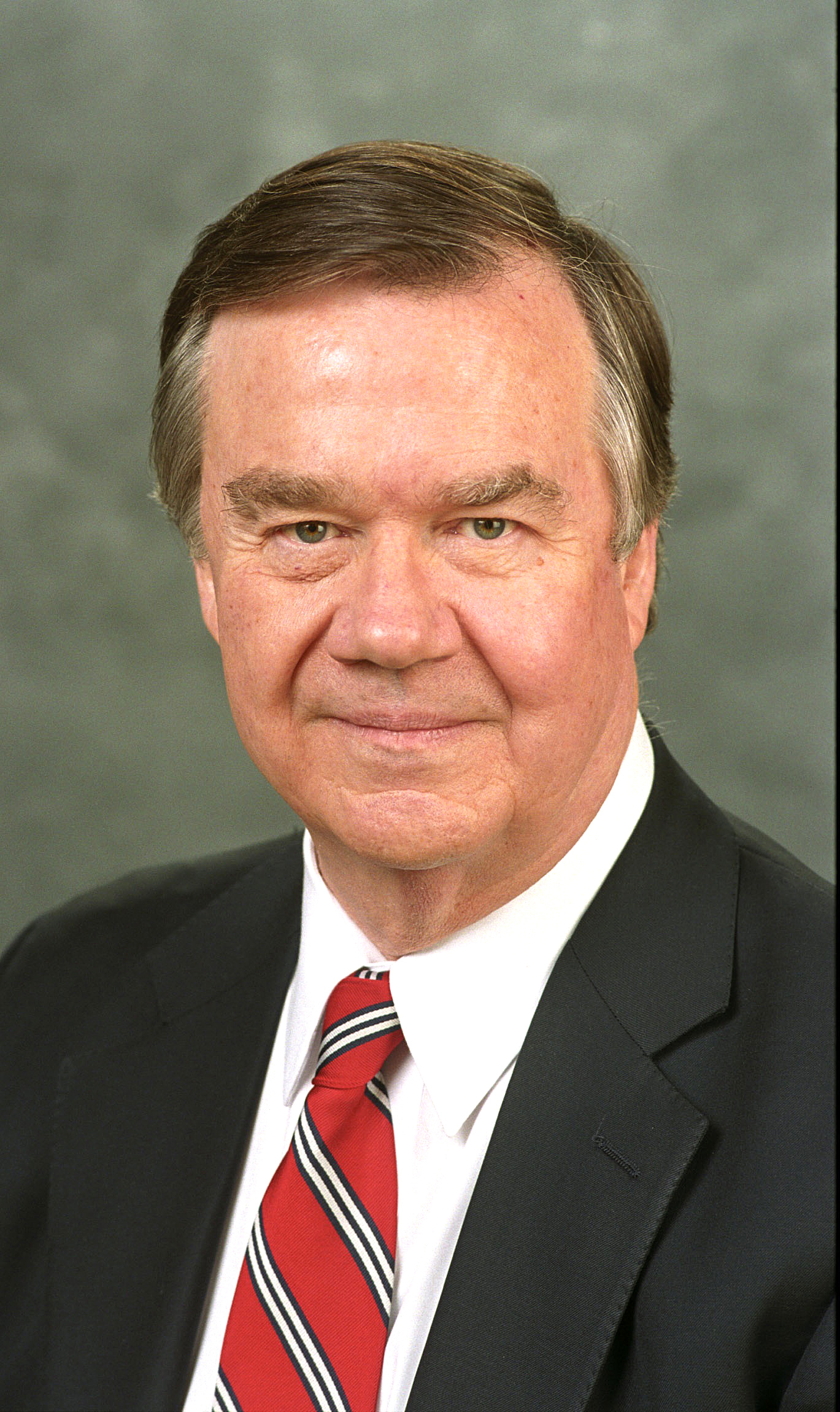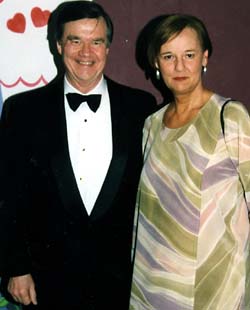Bob Thach was in his element.
Working with Paul Doty in one of the top molecular biology labs in the world, he served as a teaching assistant for several Nobel laureates. Doty’s lab at Harvard University was widely considered to be one of the best around.
And as part of his graduate studies, Thach got in on the ground floor of one of the most groundbreaking discoveries of modern science — cracking the genetic code.

“I worked with a noted polymer chemist who, I learned when I got there, was interested in DNA and RNA, which I had never been particularly focused on,” Thach says. “So I was assigned the task of designing ways to crack the genetic code. This was back before we knew what the code was, and my job was to design ways of synthesizing synthetic RNA to help crack the genetic code.
“Back in those days, molecular biology was dominated by the two Cambridges, or at least we liked to think so — we were told that. So it was a very heady atmosphere breaking the genetic code, the forerunner of the genome project. That was a very exciting time.”
But a funny thing happened on the way to genome success — he became an administrator. Having risen through the ranks at Washington University, Thach, Ph.D., is dean of the Graduate School of Arts & Sciences.
And he loves every minute of it.
“In 1993, I just realized that I was not as fascinated with new developments in research,” Thach says. “I was still fascinated with some of the questions I had been working on for a number of years, but I was not turned on by new opportunities, new directions that research was taking. I realized that was a sign my career in research was approaching a natural terminus. And then the opportunity to move on to a deanship was presented, and I decided to try it out, try something new — and I loved it.

“I was very interested in the problems we face and how we solve those problems. I found that fascinating, and it was a challenge — data gathering, data management and data interpretation — so in some ways it was very scientific. And that aspect of it I particularly liked, and that’s how I got to where I am today.”
Of course, it’s not as if he had planned to become a dean all along. In fact, when asked if he thought as a graduate student that he’d end up in administration, he’s quick with a laugh and a “No way!”
But here he is, 10 years after taking the deanship and still going strong.
“A great asset Bob has is his amazing memory,” says Lisa Goessling, a research assistant who has collaborated with Thach on several research projects. “He’ll start discussing results of an experiment I did 15 years ago, and as I look at him with a blank stare, he’ll tell me what month and year I did the experiment so I can look it up in my old notebooks. Sure enough, 99.99 percent of the time he’ll have the facts right. Of course, he’ll probably say in the old days that he would have been 100 percent of the time.
“I’m sure his memory is one reason he can balance his duties as dean with being a researcher.”
While serving as dean of the graduate school, Thach has overseen several improvements. Although the program had been in very capable hands before he arrived, Thach kept it going in the right direction.
“It’s important to say that graduate education was in very good shape when I came in as a dean,” Thach says. “My predecessors had done a wonderful job in finding the support necessary for graduate students, so I had the shoulders of giants to stand on; there is no question of that. But what I did was carry it on to the next level.”
And beyond. Among his accomplishments as dean, Thach is most proud of generating long-term financial support for every graduate student, and more recently, generating year-round support for those who apply.
Getting long-term support for graduate students helps enable them to finish their degrees quickly, which has been successful because the University has very short time-to-degrees relative to other institutions. As Thach says, “Our graduate students get out fast.”
Chancellor Mark S. Wrighton says, “Bob Thach is a great academic leader whose own scientific and scholarly interests have enhanced his ability to develop and enhance our graduate programs. Washington University has benefited greatly from his distinguished career and his commitment to our scholarly mission.
“He is a thoughtful and respected administrator and contributor to our campus community. The enhancements to our graduate programs are now being implemented at other top research universities, a tribute to Bob’s leadership and innovative work.”
Still a scientist
You can take the scientist out of the field, but you can never really take the field out of the scientist. And to that end, Thach still maintains a small lab on campus and continues to churn out scientific data.
The lab serves another purpose, too. When he has time, he can head over and take a few moments to work on a question that has been bothering him since 1983.
The answer is tantalizingly close.
Robert E. Thach, Ph.D.Years at the University: 33Nobel laureates worked with: Jim Watson (1962, medicine); Francis Crick (1962, medicine); William Stein (1972, chemistry); Wally Gilbert (1980, chemistry)Why his name might sound familiar: Two brothers are on the School of Medicine faculty: W. Thomas Thach Jr., M.D., is a professor of anatomy and neurobiology, of neurology and of physical therapy, and Bradley T. Thach, M.D., is a professor of pediatrics.Patent owned: “A Tightly Regulated Expression System for Eukaryotic Cells,” U.S. Patent No. 5,580,752 (1996)Degrees: A.B., summa cum laude, chemistry, Princeton University, 1961; Ph.D., biochemistry, Harvard University, 1964
“We’re trying to find out how to use translational control mechanisms for regulating gene expression in a live animal, and to see if we can do that in mice the way we can in cells growing in culture,” Thach says. “Beyond that, there are a lot of interesting questions in archaeology and anthropology that I’ve been interested in my whole life, and at some point I might undertake research in those areas.”
However, retirement is on the distant, distant horizon for Thach. Waking up every morning, he knows he will face different challenges in his life as a dean. But they are challenges that he, the scientist, relishes.
“I enjoy putting together budgets, and I guess that’s the scientist in me,” Thach says. “I like dealing with numbers; I like the numbers to come out even at the end of the page.
“I like working with graduate students and listening to their problems and concerns and finding ways to help them, better their lot in life.”
Thach also works extensively with faculty, and mentions that he particularly enjoys interacting with the chairs of departments and graduate-program directors, whom he says are dedicated people who have graduate education at the forefront of their agendas.
“I’ve worked with Bob for almost 18 years and am still impressed with not only his intelligence but also the quality of his character,” Goessling says. “Bob has always shown concern for those who have worked for him, and on top of all that he has a great sense of humor. Over the years, our weekly lab meetings have become an enjoyable mix of science and socializing.”
And if the numbers, sciences, problems, budgets and policies ever become overwhelming, Thach can find respite from his work right outside his back door.
Very interested in Native American foods, Thach maintains a garden in his back yard.
“I’ve gone out into the woods and found persimmon trees and planted persimmons in my back yard,” Thach says. “I have a grove now, and I harvest persimmons every fall and make Native American dishes with them.
“I also planted a couple of paw paw trees and am waiting for them to grow and bear fruit, and I planted a species of oak tree of which the acorns are supposed to be edible.”
But make no mistake: He is a scientist through and through.
“I just love tackling problems,” he says. “I do crossword puzzles and most of the cryptograms in the paper every night just for relaxation.
“I just like solving problems and puzzles.”